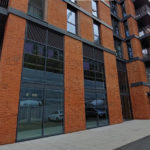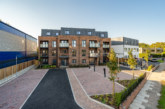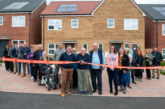More than 10,000 Haringey homes in the east of the borough will receive low carbon, sustainable energy after the council was awarded £27.8m funding.
The Tottenham Hale and Broadwater Farm District Energy Network (DEN) and the Wood Green DEN will help support Haringey’s goal of becoming net zero carbon by 2041, as well as deliver ambitious economic growth and house building, placemaking and development plans in the borough.
With energy costs soaring and a number of families facing financial hardship, Haringey has taken a stand to ensure our residents are receiving affordable, low-carbon heat.
The plans involve two, interlinked schemes that will enable further infrastructure development, with the Tottenham Hale and Broadwater Farm DEN eventually delivering heat to almost 7,500 homes and over 125,000m2 of commercial floor space and the Wood Green DEN doing likewise for around 5,000 properties and 144,533m2 of commercial floor space.
Cllr Mike Hakata, the Deputy Leader of Haringey Council and Cabinet Member for Climate Action, Environment & Transport, said: “The heat networks at Tottenham Hale, Broadwater Farm and Wood Green are significant projects within the borough’s Climate Change Action Plan (CCAP).
“With the borough’s homes making up 50% of its carbon emissions, the DEN programme will provide an alternative to highly polluting, individual gas boilers in homes and buildings with an infrastructure which could reduce CO2 emissions from heating by 80% versus the use of gas.
“The DEN programme will go a long way to delivering our CCAP pledge of delivering homes that are desirable, warm and affordable to run.”
The funding for this strategic project is set out in two phases, with the first stage focused around finalising the design for the scheme and setting out the business case for the full investment.
Should the business case for the scheme be proven in due course, the remainder of the funding can be accessed to implement and install it.
This interlinked network is being designed to carry on through to Hackney, thereby delivering low carbon heat and carbon savings to Haringey’s neighbouring boroughs too.
If successful and all the proposed businesses and homes were to be connected along the projected route, the DEN programme would reduce the borough’s carbon footprint by 5%. It would therefore represent the biggest carbon reduction project delivered in Haringey to date.
Header image: Rosa Luxemburg Apartments — one of the housing developments that’s set to benefit from low carbon, sustainable energy as part of the District Energy Networks (DENs) in Haringey.









